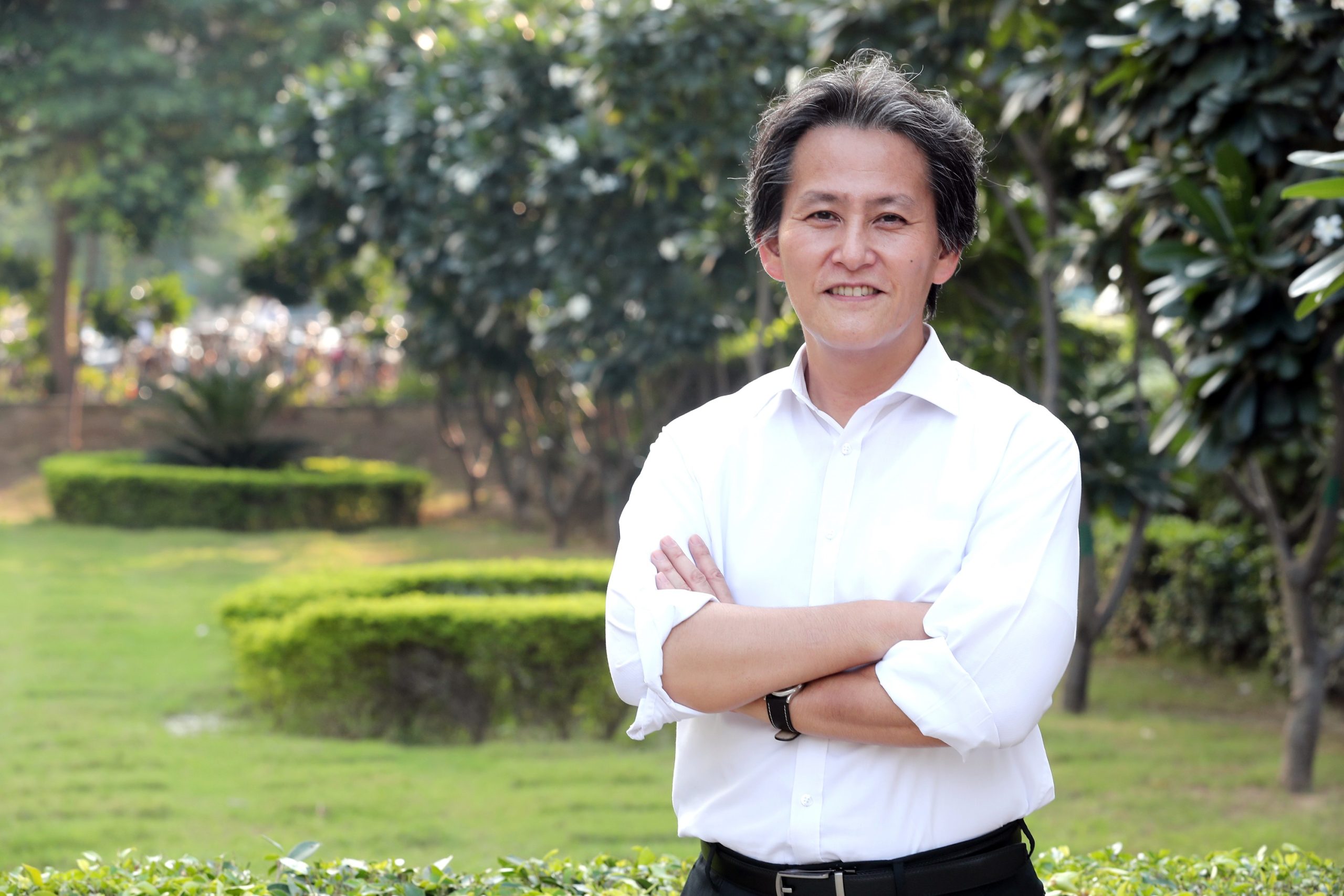We are joined by an industry exemplary for an exclusive interview. Canon India’s President and CEO, Mr. Manabu Yamazaki, led an amazing ceremony for Canon’s new platform NorthStar, a holistic advisory platform for enthusiasts looking to create studio setups, photography setups, and so on. Mr. Yamazaki has carefully ingrained his philosophy towards his career and his devotion to his consumers is admirable. We had the pleasure of speaking to Mr Yamazaki directly about the innovation platform NorthStar and his professional journey with Canon.
Related article: Canon India’s NorthStar Will Revolutionise the Future of the Imaging Industry
Exhibit: Introduce us to Canon and your new platform, NorthStar.
Yamazaki: It’s a platform where our target customers are studio owners, production owners or someone in this imaging industry, creating content and providing deliverables. To really review and see the opportunities, with the latest technology and how to do a makeover. They need a proper advisory, so we provide advisory services, and consultations, and involve specialists. In a nutshell, where there is expertise needed, Canon comes in. This is also B2B, for entities and not for individuals.
Exhibit: How did you come up with the idea of NorthStar?
Yamazaki: In a nutshell, we see a fragmented market. People are somewhat lost in the industry. For example, augmented reality, AI, AR, and all kinds of new technologies are coming. So how do they take in these technologies and properly optimise their existing setup into this new age? So they can cater to their needs. They need advisory. That’s how we picked up from the market and came up with NorthStar.
Exhibit: What makes the NorthStar platform unique?
Yamazaki: Because no one does it today. So that’s already unique in itself. It’s very practical, in a way, that we involved many people. We’ve done a lot of studies in this market in the last couple of years and seen many changes and shifts in technology. As to create the latest content in imaging, it requires different types of products to make them–software, hardware, tools, expertise, setup, wiring, everything. We need to involve integration of a kind but that needs specialists in each case. We have all these contacts so this network of people has actually joined this school of thought to do this. Along with product vendors, like Dell, Sennheiser, and Adobe. We don’t do everything in terms of product technology so we engage people who do that and we work with them. Then, we bring in the system integrator to put this together so at least if there’s a new investment from them, they can talk to the system integrator. However, we come as an advisory board. So it’s a team of professionals running the new-age studio. That’s basically why it’s unique because no one else is doing it.
Exhibit: You have mentioned Canon uses the Japanese term, ‘Gemba,’ previously. How did this integrate into NorthStar?
Yamazaki: ‘Gemba’ is a keyword that means ‘On-Site.’ You go visit the customer. We have transactions every day, every minute, with all kinds of customers on a professional scale. With a country as diverse as India, it probably holds the largest number of OTT, studio setups, cinema, movie productions, and YouTube users available. I think for the videography and still photography industry, all in all, India is the big hub of all things happening. This is the Gemba as a market for us. That’s what happens to every one of us in the organisation. Not just me. Everyone’s going out there, and engaging people.
Exhibit: How does Canon India tailor its strategies to address the needs of different regions within the country?
Yamazaki: We have divided India into 4 locations in terms of directions – South, North, East and West. In each location, we have a regional headquarters function where they pick up and extract the regional intelligence. They do their own research. Instead of looking at India as one country and approaching this blanket-wise, every state has a different agenda and different sets of practising. So, we’ve basically based ourselves regionally too and given some accountability in managing how to strategise our approaches regionally. So that’s how we do it.
Exhibit: What are the future benefits you are predicting with NorthStar?
Yamazaki: We are creating this universe that makes people stay relevant enough to date with the technology. As you know, technology today is accelerating its speed. Technology a year ago is probably already archaic or outdated. So this space, how do we play and stay relevant? We are setting a scene for all of us in this community, to stay relevant and staying up-to-date by using each other’s relevance. All these people, the industry players, have their own areas of speciality. So, that is the importance of this union. This is a league of specialists.
Exhibit: Can you share some significant obstacles you’ve faced in your career?
Yamazaki: I think providing something like this would require very meticulous project management. So project management is something that we have to pay careful attention to. We made a commitment to the customer so this management is not an obstacle. It is a challenge that we have to commit to.
Exhibit: How has your journey led you to your current role as President of Canon India?
Yamazaki: I worked in various locations before, doing different things. Coming from this company, we have 4 different types of products. I have been in touch with 3 of them actually. Being in touch with different types of products in the actual market as well as being in different regions and speaking different languages–helped me in bringing me over here. This is probably the biggest market with the most potential, in terms of scale and depth. That probably required my expertise. That’s how I see it, I’ve never asked anybody for this.
Exhibit: What’s your personal philosophy with your business?
Yamazaki: Integrity, trust, insight, and empathy.
